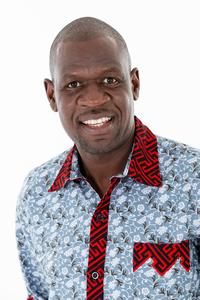Announcing our partnership with the Museum of West African Art.

A new collaboration between Oxford’s School of Archaeology and the Museum of West African Art (MOWAA) is set to build a centre of archaeological excellence in West Africa and develop a new generation of archaeologists, which will tell the narrative of the region’s past from an African perspective and develop student pathways to benefit research.
Professor Amy Bogaard, Head of Oxford’s School of Archaeology, says, ’This is an exciting opportunity to engage with new research in Benin and west Africa, and to help train a new generation of archaeologists working in the region.’
This centre will be a part of The Pavilion, the first building within MOWAA’s creative district located in the centre of Benin City, and will serve as an archaeological, cultural and historical research institute as part of the joint initiative.
Students from West African countries, or with a strong academic interest in West African archaeology and heritage, will benefit from a bespoke programme to access the Oxford School’s world-leading graduate courses in archaeological science.
Ore Disu, the director of the Pavilion, says, ‘This partnership with Oxford University sets us out firmly on an ambitious path to establish a world-class collections facility and a centre of excellence for archeological science, conservation and museum practice in West Africa. It will strengthen the pipeline for African-centred scholarship, with the view to unearth the sophistication of our shared past and power new ideas about our possible futures’.

The research programme will be led by Professor Shadreck Chirikure, Oxford’s Edward Hall Professor of Archaeological Science, and an adviser to MOWAA. He says, ’Some partnerships only extract archaeology samples from Africa and leave the continent with no training and no access to publications by local scholars. This partnership sets an example of how transformative collaboration in research and capacity building can establish a centre of excellence with equal benefits to everyone.’
Professor Chirikure’s research interweaves techniques from hard sciences with those from humanities and social sciences to explore ancient African technologies and better understand past societies, and to apply lessons from the past to tackle global challenges.
This partnership will help build a strong foundation for the future of the Pavilion through three core elements:
- Skills development
- World-leading research on West African archaeology, and
- State of the art analysis of material and biological remains.
Background. The relative lack of previous archaeological research into Benin, combined with the wide range of relevant non-archaeological sources, highlight the importance and complexity of developing a research design for such an ambitious programme. Historical primary and secondary sources, museum/art historical studies of looted/exported objects, published oral and local histories from Edo state/Benin and ethnographic studies will all contribute to scholarship.
Skills Development. By creating a bespoke scholarship programme on the MSc and DPhil Archaeological Science degrees, the partnership will help create a pipeline to meet the staffing needs of the Pavilion. and to explore the archaeology of Benin and west Africa.
World-leading research on West African archaeology. World-leading, academically-independent research on West African archaeology has the ability to underpin exhibitions and archaeological excavations, enhance the public profile of specific projects and advance the academic field.
State of the art analysis. Ultimately, the Pavilion will provide a cutting-edge facility for the benefit of all West Africa and beyond. Whilst the Pavilion is being established, however, Oxford’s School of Archaeology research laboratories will help EMOWAA Trust get a head-start on archaeological analysis by utilising the existing capacity within the School.
Over five years, starting in 2024, the School will act as a hub for the advanced analysis requirements of the Pavilion, associated archaeological investigations and the museum. Included in the project will be leading specialists in archaeology specialisms, including:
- Paleoenvironmental
- Material Science
- Bioarchaeology
- Precision chronology
- Specialist mapping.



